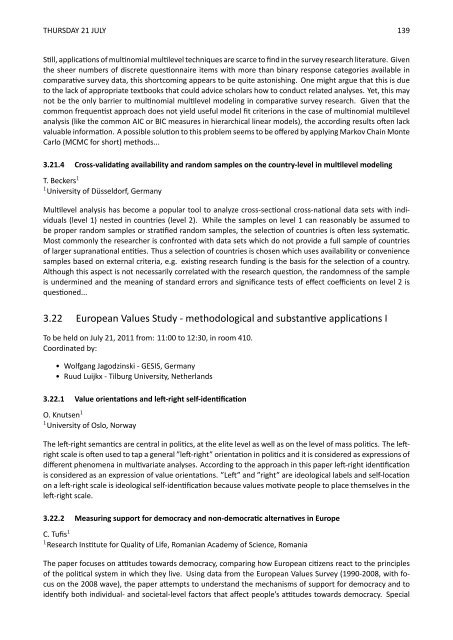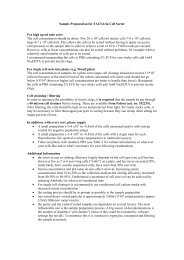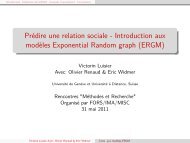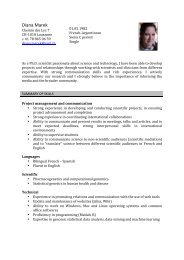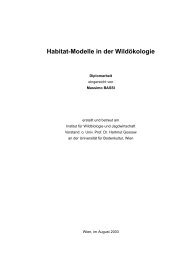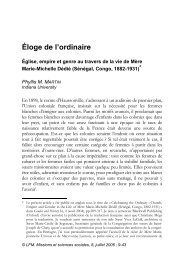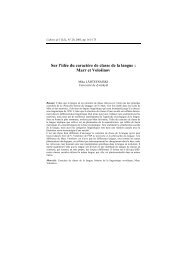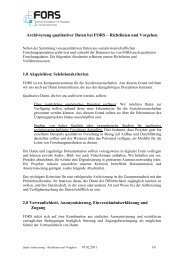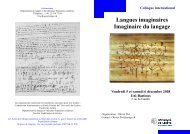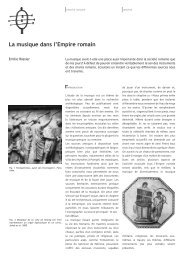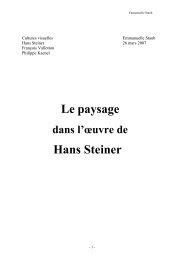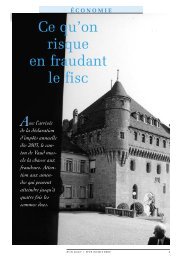conference programme book - European Survey Research ...
conference programme book - European Survey Research ...
conference programme book - European Survey Research ...
You also want an ePaper? Increase the reach of your titles
YUMPU automatically turns print PDFs into web optimized ePapers that Google loves.
THURSDAY 21 JULY 139Sll, applicaons of mulnomial mullevel techniques are scarce to find in the survey research literature. Giventhe sheer numbers of discrete quesonnaire items with more than binary response categories available incomparave survey data, this shortcoming appears to be quite astonishing. One might argue that this is dueto the lack of appropriate text<strong>book</strong>s that could advice scholars how to conduct related analyses. Yet, this maynot be the only barrier to mulnomial mullevel modeling in comparave survey research. Given that thecommon frequenst approach does not yield useful model fit criterions in the case of mulnomial mullevelanalysis (like the common AIC or BIC measures in hierarchical linear models), the according results oen lackvaluable informaon. A possible soluon to this problem seems to be offered by applying Markov Chain MonteCarlo (MCMC for short) methods...3.21.4 Cross-validang availability and random samples on the country-level in mullevel modelingT. Beckers 11 University of Düsseldorf, GermanyMullevel analysis has become a popular tool to analyze cross-seconal cross-naonal data sets with individuals(level 1) nested in countries (level 2). While the samples on level 1 can reasonably be assumed tobe proper random samples or strafied random samples, the selecon of countries is oen less systemac.Most commonly the researcher is confronted with data sets which do not provide a full sample of countriesof larger supranaonal enes. Thus a selecon of countries is chosen which uses availability or conveniencesamples based on external criteria, e.g. exisng research funding is the basis for the selecon of a country.Although this aspect is not necessarily correlated with the research queson, the randomness of the sampleis undermined and the meaning of standard errors and significance tests of effect coefficients on level 2 isquesoned...3.22 <strong>European</strong> Values Study - methodological and substanve applicaons ITo be held on July 21, 2011 from: 11:00 to 12:30, in room 410.Coordinated by:• Wolfgang Jagodzinski - GESIS, Germany• Ruud Luijkx - Tilburg University, Netherlands3.22.1 Value orientaons and le-right self-idenficaonO. Knutsen 11 University of Oslo, NorwayThe le-right semancs are central in polics, at the elite level as well as on the level of mass polics. The lerightscale is oen used to tap a general ”le-right” orientaon in polics and it is considered as expressions ofdifferent phenomena in mulvariate analyses. According to the approach in this paper le-right idenficaonis considered as an expression of value orientaons. ”Le” and ”right” are ideological labels and self-locaonon a le-right scale is ideological self-idenficaon because values movate people to place themselves in thele-right scale.3.22.2 Measuring support for democracy and non-democrac alternaves in EuropeC. Tufis 11 <strong>Research</strong> Instute for Quality of Life, Romanian Academy of Science, RomaniaThe paper focuses on atudes towards democracy, comparing how <strong>European</strong> cizens react to the principlesof the polical system in which they live. Using data from the <strong>European</strong> Values <strong>Survey</strong> (1990-2008, with focuson the 2008 wave), the paper aempts to understand the mechanisms of support for democracy and toidenfy both individual- and societal-level factors that affect people’s atudes towards democracy. Special


